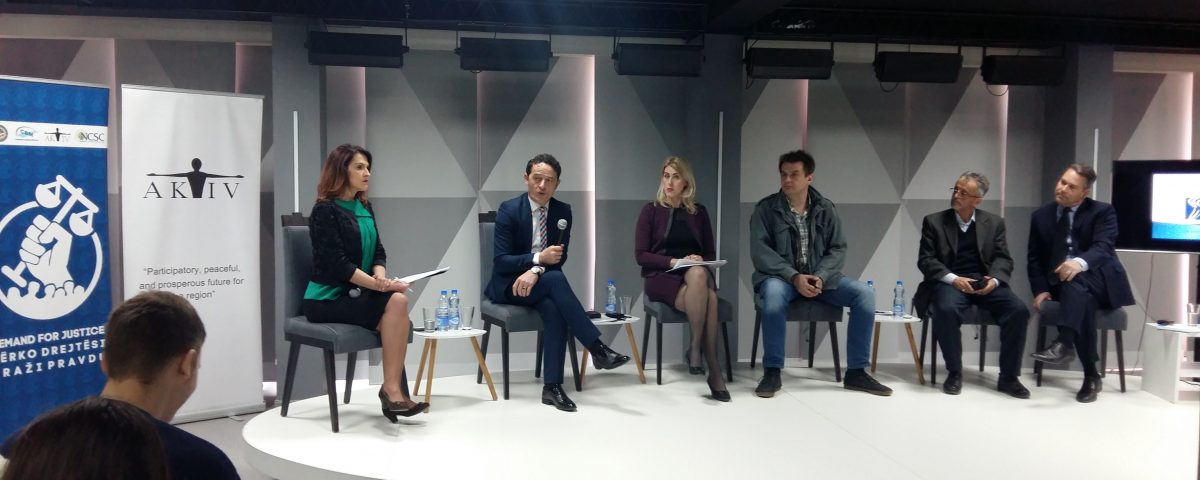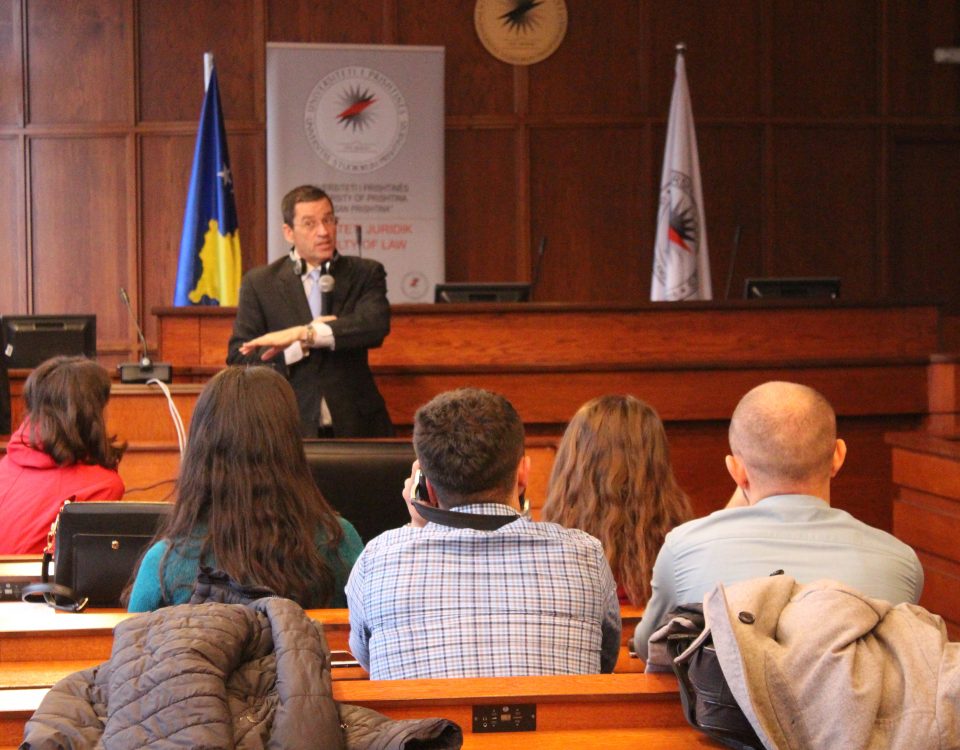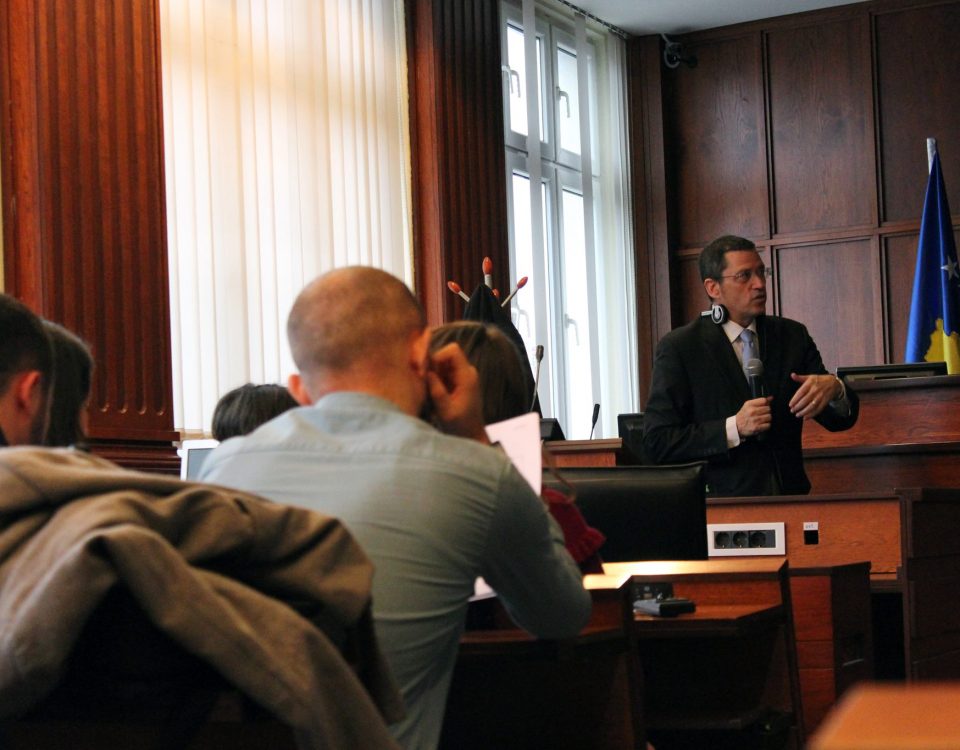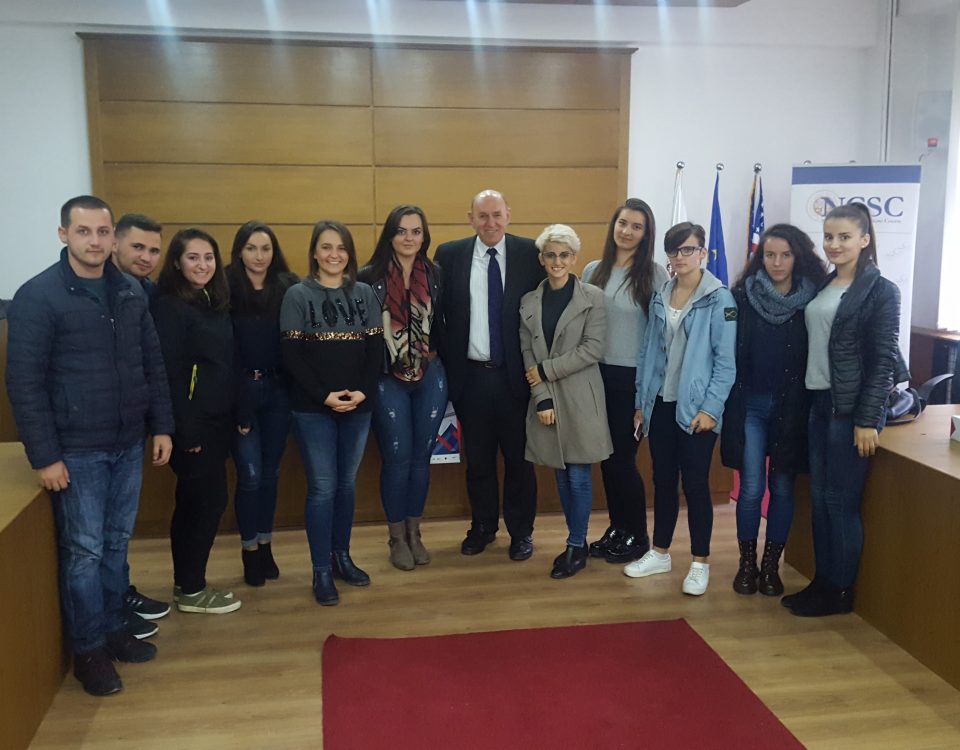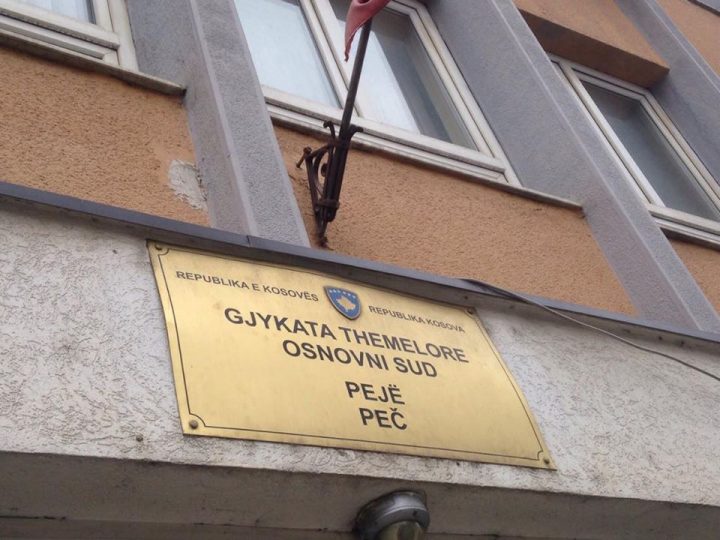Ombudsperson talks to youth in North Mitrovica

Clinic Students Visit the Basic Prosecution in Prizren
April 26, 2017
EULEX Prosecutor Lectures at the University of Prizren Live Legal Clinic
May 11, 2017North Mitorvica, April 27, 2017 – Kosovo Ombudsperson Hilmi Jashari presented the central role and jurisdiction of the Kosovo Ombudsperson Institution (OIK) as the citizens’ human rights watchdog at a town hall debate held at the Center for Civic Energy. Mr. Jashari addressed a diverse group of 38 university and high school students, as well as NGO representatives, hailing from the North and South Mitrovica area. He was joined by Miljana Scekic, Legal Adviser of the OIK’s Regional Office in North Mitrovica who took care to explain the competencies of the Ombudsperson Institution, including OIK’s Regional Offices, such as offices in Mitrovica. Meanwhile, the Kosovo Bar Association (KBA) was well represented on the panel by Advocates Dejan Vasic and Ubejid Gasi – each of whom joined the Ombudsperson in fielding tough questions from the audience – while also sharing their perspective regarding citizen access to justice in Mitrovica which they stressed would require additional attention from the Ombudsperson.
The lecture was organized as a part of the, “Demand for Justice” (D4J) Program led by NCSC in partnership with a diverse group of committed local partners. D4J has been presenting “Youth for Justice” (Y4J) lectures focusing on human rights, access to justice, and judicial accountability in Mitrovica, Pristina, Prizren, Peja through its partners at Youth Initiative for Human Rights- Kosovo (YIHR KS), Community Building Mitrovica (CBM), and NGO-Aktiv. The aim of these (Y4J) lectures has been to inform young people about their rights and responsibilities as citizens of Kosovo, and the obligations of the Kosovo Ombudsperson Institution and a range of other justice sector officials to protect citizens’ rights and deliver justice.
With regard to the Ombudsperson Office, Mr. Jashari endeavored to explain how his staff works to protect citizens by exposing government abuse or failure to provide essential public services. He also introduced the students to the Ombudsperson’s new application for mobile phones named “Know Your Rights” offering the public key information as well as an opportunity to report abuses they may witness or experience.
Regarding Kosovo’s official languages, Mr. Jashari made a point of recognizing several instances in which the Serbian speaking citizens of Kosovo had been denied equal access to information and expression on public forums, and that he was not satisfied with translations of the names of institutions in either language, at one point demonstrating that the term “Avokati i Popullit” was an inadequate interpretation for the term “the people’s lawyer”. Accordingly, Mr. Jashari insisted upon his Office preparing a standardized Albanian/Serbian glossary of key terms in order to avoid poor interpretation of the laws. In conclusion, he emphasized that Ombudsperson Office success would require financial independence, and other legislative protections from any undue influence from any sector or segment of society.
Miljana Scekic said that regional Ombudsperson office reacted in 27 cases of citizens’ complaints to courts in this region, most of which were collective.
Advocate Dejan Vasic pointed out that it is important for all citizens to be familiar with Kosovo’s legal framework and laws, and with the Ombudsperson’s jurisdiction in order to understand which situations may trigger the Ombudsperson’s obligation to act on their behalf against government overreach or failure to protect.
Advocate Ubejd Gasi, lawyer from South Mitrovica said that the most common form of violation of citizens ‘rights is violation of the right to a fair trial within a reasonable time. He also pointed out that courts are responsible for that, and he cited several cases.
D4J will continue its support to the Ombudsperson to reach out to citizens in the North of Kosovo, since it is the only mechanism to receive reports from citizens in that part of the country.

